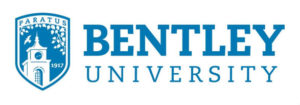The following curriculum was prepared for Bentley University:  Class: EXP 101
Class: EXP 101
Instructor: Matt Robinson – 617-877 6264 / mrobinson@bentley.edu
Overview:
YOUR IDEAS MATTER!
Just because you may not have been published or have a best-selling book does not mean that your words lack value.
Effective communication – whether in speech or writing – is important, but it is NOT complicated. With a few simple moves, you can explain complex economics, draft a business plan, or do whatever you need in life easily and effectively.
In this course, we will look at ideas from other writers and thinkers on familiar contemporary topics in order to try to figure out what moves they use to effectively express and share their ideas. We will then try to incorporate these moves into our own communicative practices.
The moves we will analyze will fall into three main categories:
- Summary – In which a reader considers another’s expressions and sifts out the key elements and ideas.
- Analysis/Evaluation – In which a reader considers another’s expressions and comments upon the key elements and ideas.
- Synthesis – In which a reader considers another’s expressions and comments and combines key elements and ideas with those of others (and potentially their own).
By tracking these moves in the writings of others, we will come to see how they are used and how we can use them to make our own expressions more clear and effective.
Communication not only involves conversation; it IS conversation. This course will help us enter the conversation that has been going on since the dawn of human language and find the common elements that have sustained and strengthened it while also strengthening our ability and resolve to contribute to and participate in it.
Our particular portion of this conversation will focus on an area with which we are all familiar – popular culture. Defined by our new cultural “bible” (a.k.a., Wikipedia) as “the totality of ideas, perspectives, attitudes, memes, images and other phenomena that are preferred by an informal consensus within the mainstream of a given culture” (Wikipedia contributors, “Popular Culture,” Wikipedia, The Free Encyclopedia, July, 22,2004, http://en.wikipedia.org/wiki/Popular_culture), popular culture includes pretty much anything and everything that is going on today – or, at least, all that is “popular.”
As pop culture is so pervasive, pretty much everyone has an opinion on it. While some decry it as a sign of the “dumbing down” of society, others celebrate it as a sign of an ever-evolving culture. In this class, we will look at thinkers on both sides of the proverbial fence and see where our ideas fall and how they are shaped by those of others. We will then engage these others in the conversation that is itself the heart of culture.
Required Texts:
- Graff, Gerald and Cathy Birkenstein. They Say/I Say: Moves that Matter in Academic Writing. New York: Norton, 2006. (They Say)
- Maasik, Sonia and Jack Solomon. Signs of Life in the USA: Readings on Popular Culture for Writers. New York: Bedford/St. Martin’s, 2012. (Signs)
- Additional readings as determined by the Instructor.
Additional Materials (see below for further explanations):
- Master Binder – a three-ring binder in which ALL class materials will be kept
- Reflection Journal – a journal in which reflections will be prepared and presented
- Draft folder – a folder in which ALL drafts of essays will be kept